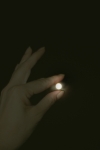Tsukimi /Moon Viewing
月見

Tsukimi /Moon Viewing
月見

Tsukimi means viewing the moon to admire, especialy the moon of
the 15th of the eighth month by the lunar calendar, which is called Juugoya
十五夜/Chushu-no-Meigetsu 中秋の名月/Imo-Meigetsu芋名月, and
the 13th of the ninth month called Jusan'ya 十三夜/Nochi-no-tsuki 後の月.
| Year | 2016 | 2017 | 2018 | 2019 | 2020 | 2021 | 2022 | 2023 | 2024 | 2025 | 2026 | 2027 | 2028 | 2029 | 2030 | 2031 | 2032 | 2033 | 2034 | 2035 | 2036 | 2037 | 2038 | 2039 | 2040 |
| Juugoya | Sep.15 | Oct. 4 | Sep 24 | Sep.13 | Oct.1 | Sep.21 | Sep.10 | Sep.29 | Sep.17 | Oct.6 | Sep25 | Sep.15 | Oct.3 | Sep22 | Sep.12 | Oct. 1 | Sept.19 | Sept. 9 | Sept.28 | Sept.17 | Oct. 4 | Sept.24 | Sept.13 | Oct. 2 | Sept.21 |
| Full Moon | Sept.17 | Oct. 6 | Sept.25 | Sept.14 | Oct. 2 | Sept.21 | Sept.10 | Sept.29 | Sept.18 | Oct 7 | Sept.27 | Sept.16 | Oct. 4 | Sept.23 | Sept.12 | Oct. 1 | Sept.19 | Sept. 8 | Sept.27 | Sept.16 | Oct. 5 | Sept.24 | Sept.13 | Oct.2 | Sept.21 |
| Juusan'ya | Oct.13 | Nov.1 | Oct.21 | Oct.11 | Oct.29 | Oct.18 | Oct.8 | Oct.27 | Oct.15 | Nov.2 | Oct.23 | Oct.12 | Oct.30 | Oct.20 | Oct.9 | Oct.28 | Oct.16 | Oct.5 | Oct.24 | Oct.13 | Oct.31 | Oct.21 | Oct.11 | Oct.30 | Oct.18 |
We decorate moon-offerings such as Tsukimi-dango (moon viewing dumplings)
the newly harvested
crops from the fields (especialy , bush clover and Japanese pampas grass
(Susuki/芒)
In fall, the air is clear and the moon looks especialy beautiful and bright.
So we enjoy the fantastic moon.
It also a prayer for a rich harvest of crops.
We usually view the moon at home, but you can also join
the Kangetsu-kai (The moon Viewing Party) held in the shrines,temples or
some events of your area.
See "Monthly Info" of September or October.
***************

Here is a very famous "Haiku" by Kobayashi Issa 小林一茶
Meigetsu o tottekurero to naku ko kana/名月を 取ってくれろと 泣く子哉
("Gimme that harvest moon!" /cries the crying/ child .....David
G. Lanoue)
*********************
![]()
Special name of the Moon by the lunar age
| Old Calendar | 1日 | 2日 | 3日 | 4日 | 5日 | 6日 | 7日 | 8日 | 9日 | 10日 |
| Moon | 4 | 5 | 6 | 8 | 9 | 10 | ||||
| Age of the moon | 0 | 1 | 2 | 3 | 4 | 5 | 6 | 7 | 8 | 9 |
| Moon's name & traditional/l iterary name of lunar calendar |
New Moon 新月/shingetsu 朔/saku, tsuitachi |
二日月/futsukanotsuki 繊月/Sengetsu |
Crescent Moon Waxing Crescent 三日月/mikazuki 眉月/mayuzuki 若月/Wakazuki 蛾眉/gabi |
- | - | - | Half Moon First Quarter 上弦の月/jogen-no-tsuki 弓張月/yumiharizuki 弦月/Yumihari 七日月/Nanokazuki |
- | - | 十日夜/Tokan'ya |
| Old Calendar | 11日 | 12日 | 13日 | 14日 | 15日 | 16日 | 17日 | 18日 | 19日 | 20日 |
| Moon | 11 | 12 | 14 | |||||||
| Age of the Moon | 10 | 11 | 12 | 13 | 14 | 15 | 16 | 17 | 18 | 19 |
| Moon's name & traditional/ literary name of lunar calendar |
- | - | - | 十四日月/Juyokkazuki 待宵/matsuyoi 小望月Komochizuki |
The moon on August 15 of the lunar calendar is called 十五夜/Jugoya 望月/Mochizuki The full moon on August 15 is called Mochizuki (十五夜の満月) |
十六夜/Izayoi Especially August 16 of the lunar calendar |
立待月 /Tachimachizuki Stand-and wait moon Especially August 17 of the lunar calendar |
Waxing Gibbous 居待月/Imachizuki Sit-and-wait moon Especially August 18 of the lunar calendar |
寝待月/Nemachizuki 臥待月/Fushimachizuki Lie-down-and-wait moon Especially August 19 of the lunar calendar |
更待月/Fukemachizuki 亥中の月Inaka-no-tsuki Wait-until- the-middle-of- the-nighy moon Especially August 20 of the lunar calendar |
| Old Calendar | 21日 | 22日 | 23日 | 24日 | 25日 | 26日 | 27日 | 28日 | 29日 | 30日 | 1 | - | - | 13日 | - |
| Moon | 21 | 22 | 24 | 25 | 26 | 27 | 28 | 29 | - | - | - | ||||
| Age of the moon | 20 | 21 | 22 | 23 | 24 | 25 | 26 | 27 | 28 | 29 | - | - | - | 12 | - |
| traditional/literary expression |
- | - | Half Moon Last Quaeter 下弦の月/Kagen-no-tsuki 二十三夜月/Nijusan'yazuki |
- | - | Waning Crescent 二十六夜/Nijurokuya |
- | - | - | Dark Moon 三十日月/Misokazuki 晦日月/Tsugomorizuki /Misokazuki |
- | - | - | Gibbous Moon Waxing Gibbous 十三夜/Jusan'ya Especially Sept 13 of the lunar calendar |
- |
二夜の月/Futayonotsuki (The Moon on August 15 and September 13 by the lunar
calendar.
有明の月/Ariake-no-tsuki (The moon which stll in the sky even the morning is
coming)
雨夜の月/Amayo-no-tsuki (The moon in the rainy night → Something invisible
but still exist)
*****************************
| Atsuta Shrine Moon Viewing Event | ||
| bush clover and Japanese pampas grass | offering of sake and tsukimi-dango | Koto music performance |
| lots of people join the party (free) | Bugaku performance | Bugaku performance |
![]()
A poem that admire the harvest moon or "Chushu no meigetsu"
「月々に月観る月は多けれど 月観る月はこの月の月」(author unknown)
Tsukizuki ni tsuki miru tsuki wa ohkeredo
Tsuki miru tsuki wa kono tsuki no tsuki.
| Koosho-ji (temple) Moon Viewing Event | ||
| Chant | The full moon of August 15th of the lunar calendar which called "Chushu no meigetsu" |
Clear flute sound and the moon make a good combination. |
| Satoimo soup service | Buddha is also shining on this day. | Satoimo is the necessities of Moon Viewing |
| Tokugawa-en (Japanese garden) Moon Viewing Event | |||||
|
|||||
| Tsukimi-dango | |||||